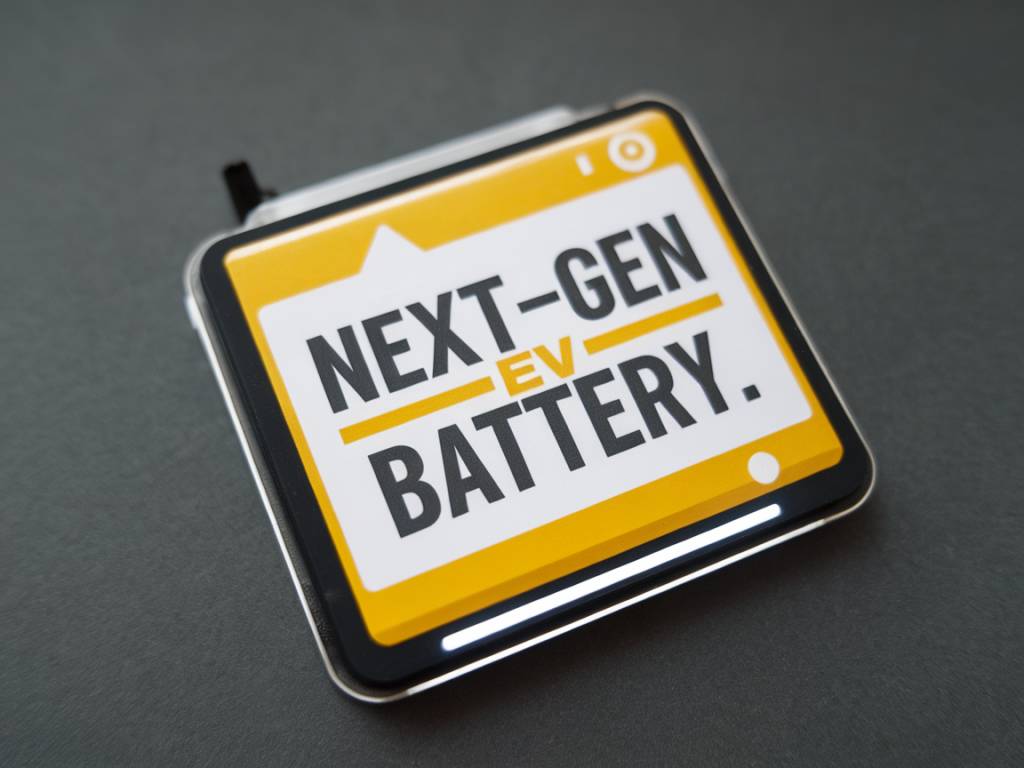exploring the benefits of solid-state batteries for the next generation of evs

exploring the benefits of solid-state batteries for the next generation of evs
The automotive industry is on the cusp of a major transformation, with electric vehicles (EVs) leading the charge. Amidst this evolution, one particular technological advancement is garnering significant attention: solid-state batteries. These next-generation powerhouses promise to revolutionize the performance, efficiency, and sustainability of electric vehicles. In this article, we will explore the numerous benefits of solid-state batteries for EVs and why they hold the key to the future of clean transportation.
Enhanced Energy Density
One of the most notable advantages of solid-state batteries is their enhanced energy density. Traditional lithium-ion batteries, typically used in today’s EVs, rely on liquid electrolytes to facilitate the flow of ions between the electrodes. Solid-state batteries, as the name suggests, utilize a solid electrolyte, which can hold more energy per unit volume. This increased energy density translates directly into longer driving ranges for electric vehicles, addressing one of the primary concerns of potential EV buyers: range anxiety.
Improved Safety
Safety is paramount in the automotive industry. One of the inherent risks of lithium-ion batteries is their susceptibility to thermal runaway—a condition where the battery can overheat and potentially catch fire. Solid-state batteries virtually eliminate this risk due to their solid electrolytes, which are significantly more stable and less prone to overheating. This inherent safety feature can reduce the need for bulky and expensive cooling systems, further increasing the efficiency and design flexibility of electric vehicles.
Faster Charging Times
Another critical advantage of solid-state batteries is their potential for faster charging times. The solid electrolyte in these batteries can withstand higher voltages and currents without decomposing, making rapid charging more feasible. This attribute addresses one of the primary drawbacks of current EV technology—long charging periods. With the advent of solid-state batteries, EV owners can expect to recharge their vehicles in a fraction of the time it currently takes, making electric vehicles more convenient and practical for everyday use.
Increased Lifespan
The longevity of a battery is a crucial factor for EV owners and manufacturers alike. Traditional lithium-ion batteries tend to degrade over time, losing their capacity and efficiency. Solid-state batteries, on the other hand, exhibit a significantly longer lifespan. The solid electrolyte is less likely to form dendrites—microscopic, tree-like structures that can cause short circuits and degrade the battery. This increased durability means that solid-state batteries can outlast their lithium-ion counterparts, reducing the need for frequent replacements and making EVs more economical in the long run.
Environmental Benefits
Solid-state batteries offer numerous environmental benefits, aligning with the overall goal of making the transportation sector more sustainable. Firstly, their longer lifespan means fewer batteries will end up in landfills, reducing electronic waste. Secondly, the materials used in solid-state batteries can be more abundant and less toxic than those in traditional lithium-ion batteries. Finally, the increased efficiency and energy density can translate to fewer resources required to produce and deploy these batteries, further minimizing their environmental impact.
Design Flexibility
The adoption of solid-state batteries could lead to significant advancements in vehicle design. Since these batteries are safer and less prone to overheating, manufacturers can explore new placement options within the vehicle, potentially improving weight distribution and overall performance. Additionally, the compact nature of solid-state batteries allows for more creative and flexible design choices, enabling carmakers to develop sleeker and more aerodynamic EV models.
Economic Implications
From an economic standpoint, solid-state batteries could redefine the electric vehicle market. While the initial cost of developing and producing these batteries might be higher, their long-term benefits such as enhanced lifespan, safety, and efficiency make them a promising investment. As production scales and technology matures, costs are expected to decrease, making solid-state batteries more accessible to a broader range of consumers and lowering the overall cost of EV ownership.
Current Developments and Future Prospects
Several major automotive and technology companies are already investing heavily in solid-state battery research and development. Companies like Toyota, BMW, and QuantumScape are at the forefront of this revolution, aiming to bring solid-state batteries to the mass market within the next decade. These advancements promise not only to enhance the performance of electric vehicles but also to accelerate the transition to a more sustainable and energy-efficient transportation system.
Despite the promising future, it is important to note that significant challenges remain. Manufacturing solid-state batteries at scale, ensuring material availability, and creating efficient recycling processes are critical hurdles that need to be overcome. However, the potential benefits of this technology make it a focal point of ongoing research and development efforts.
Consumer Impact
For consumers, the shift to solid-state batteries could mean a transformative change in how they view and interact with electric vehicles. The enhanced range, faster charging times, and improved safety could make EVs a more attractive option for a broader audience. Additionally, the potential for reduced maintenance costs and longer vehicle lifespans enhances the overall value proposition of switching to an electric vehicle.
As these developments continue to unfold, staying informed about the latest advancements in solid-state battery technology will be crucial for potential EV buyers. Understanding the benefits and limitations of different battery types can help consumers make more informed decisions when purchasing their next vehicle.
The Path Forward
The future of electric vehicles looks bright with the advent of solid-state batteries. These advanced power sources promise to address many of the current limitations of EV technology, paving the way for a more efficient, sustainable, and consumer-friendly automotive landscape. As research progresses and solid-state batteries become more commonplace, the electric vehicle market is set to experience a transformative evolution, marking a significant milestone in the journey toward a cleaner and more sustainable future.
In summary, solid-state batteries offer a multitude of benefits that can significantly enhance the performance and appeal of electric vehicles. From increased energy density and safety to faster charging times and longer lifespans, these advanced batteries are poised to play a crucial role in the next generation of EVs. As we continue to strive for a more sustainable and efficient future, solid-state batteries represent a promising step forward in the evolution of electric transportation.





